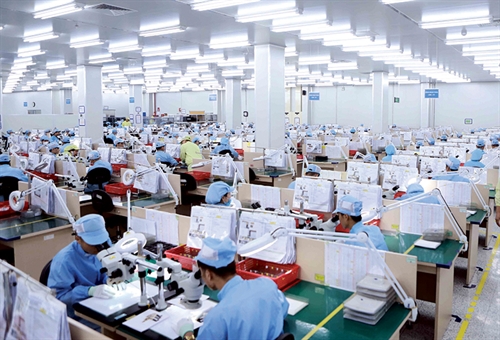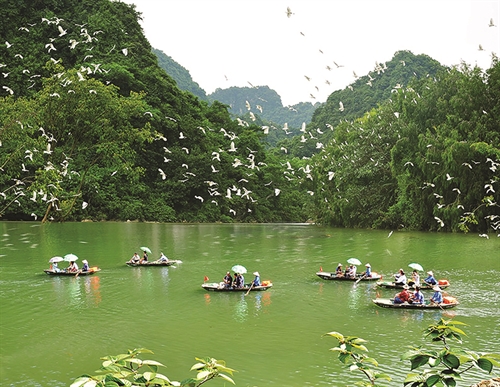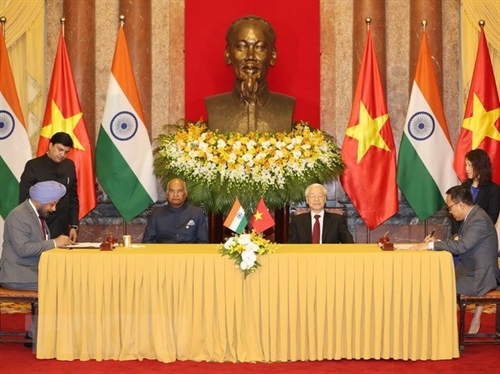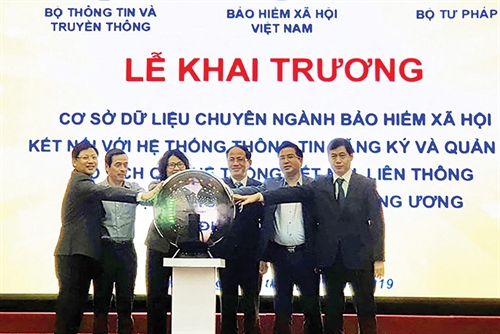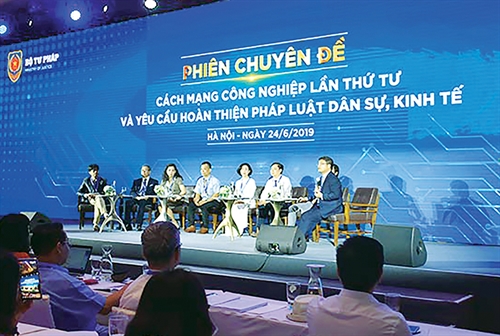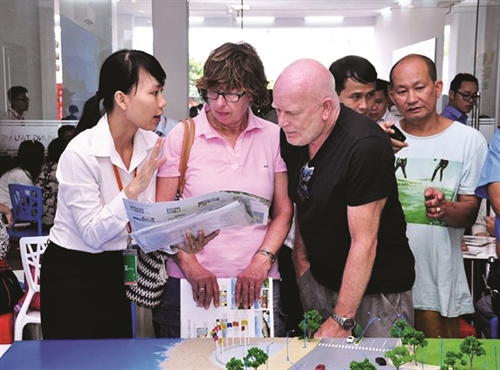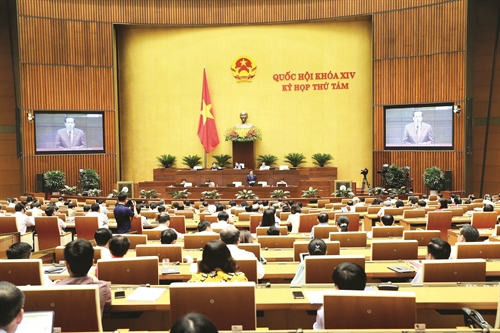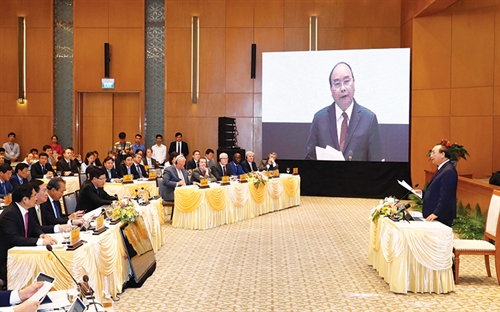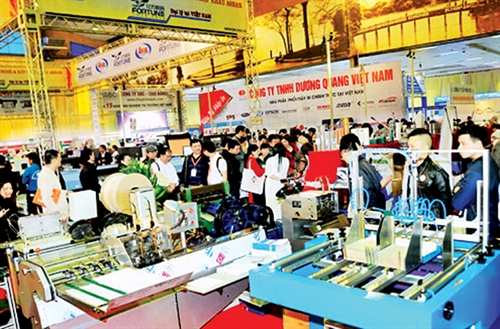The intellectual property tribunal is a specialized court set up, like in many countries, to deal with intellectual property disputes which currently become more and more complicated in Vietnam. The establishment of such specialized court is an objective requirement in the process of judicial reform in general and improvement of legal mechanisms in particular to protect intellectual property rights in Vietnam.
Nguyen Van Luat, LL.D.
Deputy Head
National Assembly’s Judicial Committee
Intellectual property rights protection in Vietnam
Intellectual property protection is fairly new in Vietnam, which was, however, a right enshrined in its first Constitution of 1946 (Articles 10, 12, 13). The Democratic Republic of Vietnam State acknowledged citizens’ rights to freedom of speech and freedom of publication and intellectuals’ rights to scientific research, literary and artistic creation, and guaranteed private property ownership as well as other rights. In 1986, the Socialist Republic of Vietnam Government issued Decree142/CP, the first separate document that regulates copyright-related relations, chalking a new landmark in the protection of intellectual property rights in general and copyright in particular. Since then, numerous documents on intellectual property rights protection have been issued, demonstrating a considerable progress in legislative activities related to intellectual property protection.
According to Article 4.1 of the Intellectual Property Law of 2005 (revised in 2009), intellectual property rights are the rights of organizations and individuals over intellectual property, including copyright and related rights, industrial property rights and rights to plant varieties, and the subjects of these rights include both individuals and legal persons. In Vietnam, the legitimate rights and interests of legal subjects are guaranteed by law and protected by the People’s Courts: “The People’s Courts are tasked to protect justice, to protect human rights and civic rights, to protect the socialist regime, to protect the interests of the State, and the legitimate rights and interests of organizations and individuals” (Article 2.1 of the 2014 Law on Organization of the People’s Courts).
The 2013 Constitution states: “In the Socialist Republic of Vietnam, human rights, civic rights… are recognized, respected, protected and guaranteed by the Constitution and law” (Article 14.1). Accordingly, intellectual property rights are acknowledged and protected by law, concretely by the 2013 Constitution: “Everyone has the rights to conduct scientific and technological research, literary and artistic creation and to benefit from those activities” (Article 40); “Everyone has the rights to enjoy and access cultural values, to participate in the cultural life, to use cultural institutions” (Article 41); and “The State prioritizes investment and encourage organizations and individuals to invest in scientific and technological research and development, transfer and effective application of scientific and technological achievements; guarantees the right to scientific and technological research; and protects intellectual property rights” (Article 62.2).
Albeit failing to separately provide mechanisms for settlement of disputes over the intellectual property rights, the Intellectual Property Law of 2005 (revised in 2009) states that when there are ground to believe that his/her/its protected intellectual property is being infringed upon by any organization or individual, the intellectual property owner may institute the case to the court for the protection of his/her/its legitimate rights and interests.
As a civil case, the intellectual property owner will base on the civil procedures to request a competent court to force the termination of infringing acts; public apology and correction; fulfillment of civil obligations; payment of compensations; destruction or non-commercial distribution of commodities, raw materials, materials and means used mainly for the production and trading of commodities in violation of intellectual property rights on the condition of not affecting the intellectual property owner’s capability to exploit his/her/its rights (Article 202).
Under the Civil Procedure Code, intellectual property disputes not related to commercial purposes will be settled by the civil court while those related to business (for profit) will be settled by the economic court, in which disputes over copyrights and related rights will be settled according to the civil procedure law or economic arbitration (Article 49.3 of Decree 22/2018/ND-CP).
However, the settlement of intellectual property disputes according to the civil procedures law reveals many limitations (especially those related to particular objects such as inventions, determination of acts of unhealthy competition related to protected intellectual property objects) as the civil lawsuit mechanism remains cumbersome, costly and ineffective. Therefore, a separate legal mechanism for settlement of intellectual property disputes is needed to protect the legitimate rights and interests of intellectual property owners.
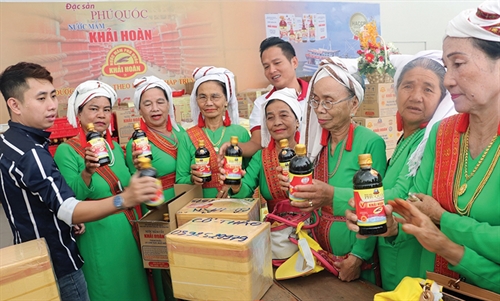 |
| Tourists buy fish sauce, a traditional specialty of Phu Quoc island which was granted the protected geographical indication status in 2001 __Photo: Le Huy Hai/VNA |
Practical settlement of intellectual property disputes in Vietnam
According to the Supreme People’s Court’s statistics, from 2000 to 2005 (before the emergence of the Intellectual Property Law) 93 intellectual property-related cases were received, of which 61 cases were handled with 16 suspended, 12 successfully conciliated and 33 adjudicated (including 11 cases involving disputes over copyrights and related rights and 22 disputes over industrial property rights).
Yet, after the Intellectual Property Law took effect on July 1, 2006, the situation was not improved with only 108 cases of intellectual property disputes being processed from July 1, 2006, to June 22, 2009, which were largely copyright disputes with 90 cases, followed by industrial property right disputes with 10 cases, five cases of disputes over the use of works, and three cases of disputes over technological transfer contracts. The Supreme People’s Court’s appeal court has so far processed seven cases with five actually settled and two of second-time appellate trial. Overall, the number of processed cases at both first-instance and appellate levels tended to rise, from seven cases in 2006 to 20 cases in 2007, 28 cases in 2008, and 36 cases in 2009. According to the Supreme People’s Court’s data, from July 2006 to June 2012, the courts received only 92 cases of copyright disputes, showing that intellectual property owners felt reluctant to bring their cases to the courts but sought for administrative handling of violations. Such situation could be attributable to (i) the substantive law imbalance between copyright and intellectual property rights; (ii) inadequacies of the procedural law on settlement of disputes over intellectual property rights; (iii) low professional capabilities of judges, thus failing to make courts a reliable channel for settling intellectual property disputes.
In the 2012-2015 period, functional bodies received 25,966 cases of infringement upon intellectual property rights, of which 23,197 cases were administratively handled; and 381 cases were criminally instituted.
The above-mentioned data show that the number of intellectual property disputes has constantly risen with a more complicated nature. Yet, in Vietnam now there are neither courts nor judges specialized in intellectual property. Therefore, industrial property tribunals should be established and judges should be provided with relevant training in order to properly settle intellectual property infringements.
International integration process and establishment of intellectual property courts
Vietnam has concluded various bilateral agreements relating to copyrights, including the Vietnam-US Agreement on the Establishment of Copyright Relations (1997); Vietnam-Switzerland Agreement on the Protection of Intellectual Property Rights and on Cooperation in the Field of Intellectual Property (1999), and Vietnam-US Trade Agreement (2000). In 2004, Vietnam applied for the membership of Bern Convention for the Protection of Literary and Artistic Works and the Rome Convention for the Protection of Performers, Producers of Phonograms and Broadcasting Organizations. Besides, the country has also acceded to the Geneva Convention, the Brussels Convention as well as the TRIPS Agreement.
In Vietnam, the handling of infringements upon intellectual property rights in general and personal ownership in particular follows the State’s policies in each period. In the early 1980s, the Government issued a number of decrees on protection of private ownership such as Decree 31/CP of January 23, 1981, on protection of inventions; Decree 197/HDBT of December 14, 1982, on protection of goods labels; Decree 85/HDBT of May 13, 1988, on protection of industrial designs; and Decree 200/HDBT of December 28, 1988, on utility solutions.
In 1989, the State Council adopted the Ordinance on Protection of Personal Ownership, which was recognized for the first time as private ownership. The emergence of such Ordinance created a profound change in the protection of personal ownership rights. On October 28, 1995, the National Assembly passed the Civil Code with a separate chapter on the protection of personal ownership as the highest legal basis in this field.
To meet the requirements of international integration and to enforce the Civil Code’s provisions on protection of personal ownership, the Vietnamese Government issued a number of documents, including Decree 63/CP of October 24, 1996, detailing personal ownership rights; Decree 06/CP of February 1, 2001, amending a number of articles of Decree 63/CP; Decree 54/2000/ND-CP of October 3, 2000, on the protection of personal ownership rights over business secrets, geographical indications, trade names and protection of the rights against unfair competition related to industrial property; and Decree 42/2003/ND-CP of May 2, 2003, on protection of integrated circuit designs.
In addition, Vietnam has actively acceded to various treaties concerning industrial property, such as the 1883 Paris Convention for the protection of industrial property; the Madrid agreement concerning the international registration of marks; the Stockholm Convention on the World Intellectual Property Organization (WIPO), the Agreement on the protection of intellectual property with the Federation of Switzerland, and the Vietnam-US Trade Agreement.
Especially when intellectual property rights become an important element for national socio-economic development and in response to the requirements of intensive and extensive international integration, on November 29, 2005, Vietnam’s National Assembly passed the Intellectual Property Law with a separate chapter addressing infringement upon intellectual property rights.
However, intellectual property cases have been rarely brought to the court for settlement due to various reasons such as the time for settlement is too long; paper work is complicated, particularly for foreign enterprises being the plaintiffs; the civil measures for immediate termination of acts of infringement are ineffective; and the capability of judges remains weak.
Therefore, it is necessary to strengthen the court system for the protection of intellectual property rights. The establishment of intellectual property tribunal in Vietnam will certainly meet this objective requirement.
Together with the process of globalization, the current Industrial Revolution 4.0 has infiltrated into all aspects of the social life, creating favorable conditions for the creation of “smart factories” or “digital factories”. Under its impacts, the digital economy has gradually taken shape in Vietnam, in which intellectual property has gradually become more popular. Besides, new intellectual property infringements are committed such as application of high technology and use of modern equipment for production of fake commodities which are hardly detected by consumers and market authorities. Moreover, they are committed in an organized manner not only within the Vietnamese territory but also overseas. Intellectual property crimes have caused or threatened to cause great harms to the national economy as well as various industries and to the property, health and lives of people. They have affected the entire community, negated the creativity and lured away investors.
The specialized courts should settle disputes not only over patent rights, labels and common copyrights but also over advertisement, marketing, domain names, the copyright piracy on the internet.
In the context of intensive and extensive international integration, intellectual property has become greater and more and more diverse, especially in the era of Industrial Revolution 4.0. Vietnam should further complete its institutions and legal system, especially establishing industrial property tribunals within provincial-level People’s Courts for more effective protection of industrial property rights. This will promptly meet the requirements of better settlement of intellectual property disputes, protecting the legitimate rights and interests of intellectual property owners and establishing a firm legal basis for the knowledge-based economy to prosper in Vietnam.-
